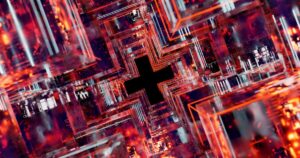Attempting to keep up with your competitors by purchasing high-quality, advanced equipment seems like a solid strategy at first. However, without proper system design, even the best equipment can break down, waste resources, and fail to give you the boost you were expecting.
While purchasing the right equipment is critical, system design plays a fundamental role in supporting long-term, reliable operations.
System design ensures compatibility
Hiring a professional to design a proper system is the only way to ensure all components will work together seamlessly and efficiently. A poorly-designed system, or the absence of any system, can lead to malfunctions and inefficiencies.
For example, mismatched pumps, valves, and pipelines can cause wasted energy and frequent breakdowns. This is why companies that need to pump fluid opt for industrial pump system design by experts before selecting their equipment.
A good system is cost-effective
Investing in system design upfront reduces the risk of unplanned downtime and breakdowns that require emergency replacements and repairs. Maximizing the lifespan of equipment depends on a solid foundation that begins with system design.
When it comes to upgrading and expanding your operations, a good system will be scalable enough that you won’t need to do a complete overhaul unless you’re changing something fundamental.
Ignoring system design comes with costly consequences
The following are common pitfalls you can avoid by implementing a strong system design:
- Inefficiencies. A poorly designed system is likely to cause wasted energy, reduced or inaccurate output, and increased operational costs. For instance, energy bills might be higher, and production mistakes could force you to run production batches all over again.
- Unexpected breakdowns. Systems are designed to support equipment integration in specific ways, and when there’s a mismatch, the equipment usually gets overworked and breaks down. The cost of downtime varies by industry, but it can cost companies millions of dollars. Sometimes an emergency replacement or repair is possible, but those always come at a higher price. When that’s not an option, you can experience extended downtime.
- Higher maintenance costs. When equipment gets integrated into a poorly-designed system, it often requires maintenance at a much higher frequency than usual. Over time, these costs add up.
As you can see, ignoring system design is a costly mistake. It’s not just a way to optimize your operations – it’s a basic requirement.
Good system design offers the following benefits:
- Customized solutions. If you buy a bunch of equipment and try to make it work, issues will show up pretty quickly, especially if you have special needs that fall outside of a typical use case. A customized system design will be tailor-made to work with your physical space, meet your operational needs, and be scalable for the future.
- Access to expertise. System design professionals are considered experts for a reason. They have the experience required to create a system that optimizes performance and reliability. You will need to add system design services to your budget, but it should be considered a necessity and not an optional luxury.
- Risk mitigation. By prioritizing system design, you’ll mitigate the potential for risks, like the costly mistake of implementing equipment on a poorly-built foundation.
These are the fundamental benefits that come from good system design. Once implemented, your business will reap extended benefits that come from running an efficient operation.
Here are 3 simple tips to get started with effective system design:
- Conduct a needs assessment
When you hire a systems design expert, they’ll conduct an assessment to see exactly what you need. In addition to assessing which equipment you should use, they’ll evaluate your operational requirements and incorporate such into the system they build for your business.
- Make quality your priority
Prioritizing quality over price is essential. You should expect to invest a decent amount of money in hiring an expert system designer to create a custom solution for your business. True expertise isn’t cheap, and it’s worth every penny.
- Collaborate with experts
Experienced system designers are the only professionals qualified to engineer your custom solution. If you hire the wrong person and end up with a poor system design, it will cost more in the long run.
The long-term value of efficient system design
Investing in system design before you purchase or install equipment is a strategic decision that pays off in the long run. Properly designed systems decrease operational costs, prevent breakdowns, and avoid inefficiencies. Whether you’re installing a new fluid pump or upgrading your whole operation, a well-planned system design will be your foundation for long-term success.





